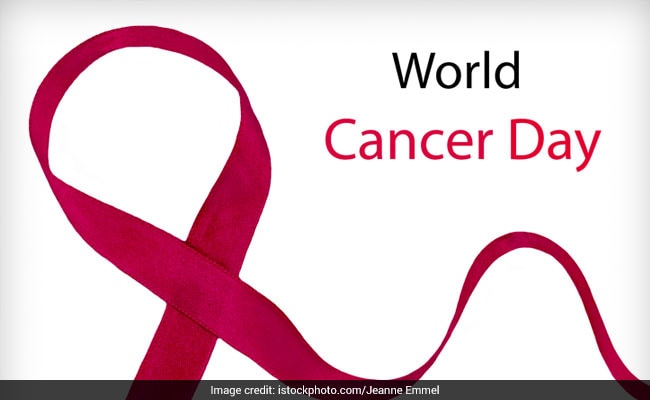Screening rates have significantly declined due to pandemic and thereby number of cancer patients diagnosed in early stage has declined, thus impacting the overall outcome of the breast cancer treatment.

Diagnosis of cancer have significantly declined due to pandemic
The COVID-19 pandemic has caused a societal turmoil triggering a rapid, continuous transformation in health care systems globally. Cancer patients are the most vulnerable who require a continuous interaction with their treating doctors which at times might call for changes in the ongoing treatment strategy depending on the patient's response. Patients faced or still facing huge challenges in getting the appropriate tests done for cancer diagnosis or treatment for the existing disease.
Screening rates have significantly declined due to pandemic and thereby number of cancer patients diagnosed in early stage has declined, thus impacting the overall outcome of the breast cancer treatment.
The pandemic has created a distressing trade-off between patient's need for undergoing various procedures and the need to protect the patients and their attenders from the infection. The restrictions imposed by pandemic have not only hampered patient's life but also of doctors how we meet our patients. As an oncologist, declaring the diagnosis and counselling the patients and families is the most important part of our treatment as that's what gives confidence and strength to our patients to undergo treatment, which unfortunately was and is getting impacted during pandemic.
At times we as doctors face difficulty to inform the results of the procedures to the patient as we are unable to connect to the patients directly. With this we are unable to console the patient or impart confidence or comfort the patient on the new diagnosis or progress of the ongoing treatment. Although this might not be the case in the patients who are educated and aware of using the virtual meeting platforms. However, we as doctors feel this as a big drawback in women from rural areas, who are not equipped both with the knowledge and instrumentation to use these platforms. Some clinical decisions would require subsequent procedures to arrive at a conclusion. In patients who are unable to undergo these procedures, we cannot make informed decision on the disease diagnoses, which is a big mishap.
For a breast cancer diagnosis, we have to perform clinical examination to feel the lump. By virtual tele medicine protocols this is impossible. If the woman feels a lump of such kind by self-examination, it needs to be confirmed with an imaging procedure called mammogram to detects any suspicious lump in the breast. In case of positive test result immediate procedures (biopsy) follow to confirm and categorise the type of breast cancer. All these procedures involve good amount of time in the laboratories. Due to pandemic these facilities run at low capacity is discouraging women to get these tests done. Moreover, with no permissions for accompanying attenders in the hospitals/laboratories and the fear of catching COVID infection women procrastinate these diagnostic procedures which could lead to disease progression in women with breast cancer with no immediate action taken for her treatment. Delay in seeking immediate medical attention, we are seeing increasing number of breast cancer cases being diagnosed in advanced stages.
Also, if patient is diagnosed with COVID during or before the initiation of cancer treatment, we had to defer surgery or chemotherapy or radiation for two weeks which leads to anxiety and stress of tumor progression not only in the patients but also the treating doctors. We had few similar challenges and are still facing them.
As an oncologist, we had revised our treatment protocols specially for breast cancer wherein we were putting patients more on hormonal therapy (ER/PR +ve cancers) so that they avoid hospital visits, especially elderly women with comorbidities. Now with better awareness we have gone back to our standard treatment protocols.
Cancer treatment per se is tough and is made tougher by this pandemic with the fear of COVID and cancer patients are more prone to catching it as they are immune compromised. With the good news of less severe clinical effects with omicron strain the situation is not that bad compared to first and second wave of the pandemic.
Which is why, when a patient completes their treatment and comes out as fighter/survivor, we celebrate their victory. But we definitely have many more lives to save.
I constantly urge women to do breast self-examinations regularly, continue doing screening mammograms and seek an oncologist opinion immediately if any abnormality found. Do not ignore any of your symptoms, as we all know the fact that early diagnosis is the only key to cure not only for breast cancers but for other cancers as well.
So, pandemic or not, cancer is not going to stop. Do not ignore your symptoms. Help us, Help You!
Dr Monika Pansari, Senior Surgical Oncologist, BGS Gleneagles Global Hospital
Disclaimer: The opinions expressed within this article are the personal opinions of the author. NDTV is not responsible for the accuracy, completeness, suitability, or validity of any information on this article. All information is provided on an as-is basis. The information, facts or opinions appearing in the article do not reflect the views of NDTV and NDTV does not assume any responsibility or liability for the same.
DoctorNDTV is the one stop site for all your health needs providing the most credible health information, health news and tips with expert advice on healthy living, diet plans, informative videos etc. You can get the most relevant and accurate info you need about health problems like diabetes, cancer, pregnancy, HIV and AIDS, weight loss and many other lifestyle diseases. We have a panel of over 350 experts who help us develop content by giving their valuable inputs and bringing to us the latest in the world of healthcare.














